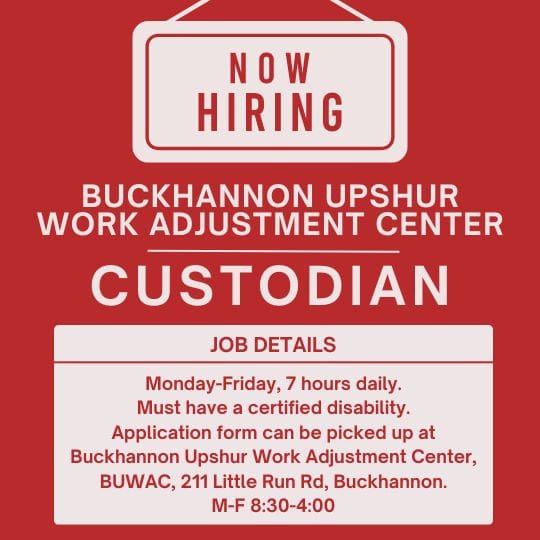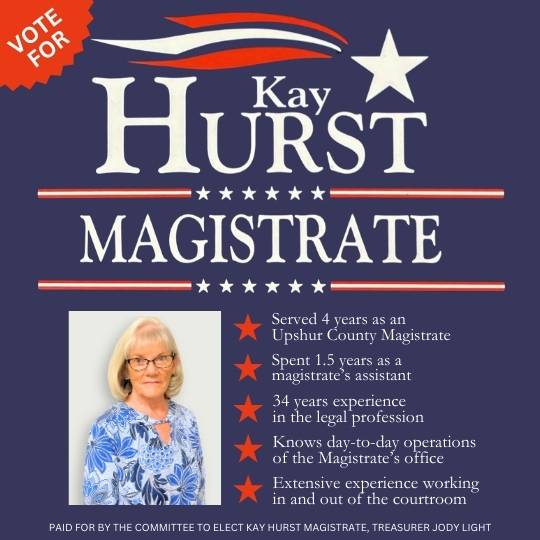Editor’s note: This story was originally published by Mountain State Spotlight.
By Douglas Soule, Mountain State Spotlight
Tina and Dave Sinsel thought they would one day retire from Mylan.
The married pair met at the company’s Morgantown plant, where they’ve worked for a collective 34 years. Dave operates machinery that produces the coating found on pills. Tina, who works in the department ensuring product quality, was in his work area a lot, checking on what went through his machine. She eventually asked him on a date.
“Now, here we are, 10 years later,” Dave said.
They’re living in a house about a 20-minute drive from the plant with two foster teens and some pets. Sitting in the driveway is a new pickup truck that Dave is unsure they’re going to be able to afford. That’s because, also 10 years later, they’re losing their jobs.
In November, Mylan, which makes generic and specialty drugs, merged with Upjohn, a Pfizer-owned company, to create Viatris. The announcement came less than a month later during a morning video meeting: as part of a global restructuring initiative, the Morgantown plant would shut down on July 31.
The news was unexpected; many employees expected another round of layoffs or possibly a temporary plant closure related to COVID-19.
“[Tina] cried for several days,” Dave said. “I walked around in a daze.”
“I still cry,” Tina said.
Around 1,500 others employed at the plant are in the same boat as the Sinsels. And the consequences of the plant closure goes farther than the workers and their families. The economic fallout of the closure looms on the horizon, leaving elected officials as well as union and business leaders to pick up the pieces left behind as a high-paying and large employer shuts down the plant.
To move, or not to move
Chad McCormick still remembers where he was when he received the call telling him he got a Mylan job: It was 2001 in his parent’s living room.
“From that day, for the last 20 years, I have directed my house payment, my car payments, my children’s extracurriculars, and everything on me having a good-paying job,” McCormick said. “Now that’s kind of being pulled out from underneath me.”
McCormick is the recording secretary for United Steelworkers Local 8-957, which represents more than 850 plant employees. He is also a material handler for the plant.
His family is not planning to relocate, since his wife has a full-time position in the area.
“I will have to probably take a much less paying job here locally,” he said, sitting at his desk at the union office in Morgantown on a recent weekday morning.
Bill Hawkins, vice president of the union and a coating operator, said he makes twice as much now than the jobs he sees advertised on the internet. Plus, he says if he’s going to take a pay cut, he wants it to be somewhere nicer than Morgantown.
He wants to move to Florida, but, with 850 other union members to worry about, Hawkins said he hasn’t had much of a chance to sit down and lay out his next steps.
The union filed a petition for Trade Adjustment Assistance that the federal government certified in March, said Joseph Gouzd, union president and a coating operator. This program offers benefits and reemployment services to those whose careers have been derailed.
But, in regard to help from elsewhere, union leaders said most elected officials have either reacted with lip service or silence.
“We’ve been reaching out to these people,” Gouzd said. “They’ve ducked and hidden.”
He credited Delegate Danielle Walker, D-Monongalia, with being the most helpful. He said Walker has been with union members since the beginning and has visited the union office a number of times.
Walker says the community and the soon-to-be-unemployed workers it holds need help.
“It is disgusting that the years of the blood, sweat and tears of what they do inside those walls and the work that they do outside of that building is going to all be abandoned,” Walker said. “We’ve leaned on them for decades. And it feels for them that they can’t lean on right now.”
When Viatris announced the plant closure in December, elected officials were quick to put out statements.
“We were given no notice that there was even a problem, and nobody came to me to say ‘This is what we need to keep going,’” Gov. Jim Justice said.
Justice said Viatris committed to helping the state locate a new operator for the facility.
“In the meantime, I will commit all the manpower and resources we have to preserve these jobs,” he said. “They mean so much to the community of Morgantown and our state as a whole.”
U.S. Sens. Joe Manchin and Shelley Moore Capito both said they would work to address the loss of jobs. The West Virginia state Senate passed a resolution earlier this year calling for a task force to call on President Joe Biden to invoke the Defense Production Act of 1950 and order the plant to be retrofitted to produce essential products for national defense. The state House of Delegates passed a similar resolution.
But union leadership says they haven’t seen much done over the last five months from all levels of government.
“The bottom line is where are these people?” Gouzd said.
Economic fallout
John Deskins, director of the Bureau of Business and Economic Research in West Virginia University’s College of Business and Economics, said while the lost jobs alone will be a heavy hit to the economy, it’ll be worse because those workers make more money than many people in the area.
Deskins anticipates a spillover effect, which he said might cost 1,000 non-plant jobs.
“If these Mylan employees lose their jobs and some of them leave the area, then they’re going to be spending less money in the area,” he said.

Deskins said north-central West Virginia is better prepared to deal with plant closure than other parts of the state, due to its economic diversity and strength.
“So north-central will be able to recover from this, north-central will be able to move on and ultimately still have economic growth over the long run,” he said. “If this were a place like Mingo County, where the county is already suffering from a wide variety of economic problems, this blow might take decades to recover from.”
Still, Deskins figures, if a new operator does not come to the plant, it may take several years to regain what was lost.
Monongalia County Commissioner Tom Bloom said the public needs to be ready for the closure.
“I’m very concerned when I see individuals or politicians saying, ‘Oh, we have a plan, we’ve got a company.’ No, we don’t,” he said. “I want to be very clear that at this time, we are working very hard.”
“But the reality is, [the closure is] getting closer. And I would rather tell a person, honestly, to start preparing your resume, preparing for what is out there, preparing for possible retraining, than waiting for the last day.”
Bloom said that, due to severance packages workers will receive, local residents may not see an immediate effect on Aug. 1, the day after the plant shuts down. But, months down the line, Bloom said there could be major economic consequences, such as on property value as former Mylan employees move away.
Gouzd said the union is still negotiating with the company about severance pay amounts and that they’re currently “worlds apart.”
Also a concern for Bloom is the “human factor,” he said, with people integral to the community — who can’t be quantified monetarily — leaving. And not only Mylan employees would be leaving, but also their families, which puts a strain on government coffers as fewer people are paying taxes.
“So the immediate impact for this next year is devastating to them and the family and is going to be very crucial for this area,” Bloom said.
Morgantown Mayor Ron Dulaney agreed the effect will go well beyond economics.
“I think that we all, or most of us, probably know at least one and often many more than one, folks who are being impacted by this,” he said. “These are folks who are embedded in our community, enmeshed with us in our daily lives.”
Bloom has heard the criticism about elected officials not helping but counters that local officials are doing everything possible.
“The problem is that we are dealing with a multibillion dollar company. And, unfortunately, we’re not dealing with a local group, which means that the decisions are being made elsewhere,” he said. “It’s difficult because this company controls the situation.”
Bloom said, for example, permission is needed to walk interested companies through the facility, and it’s difficult to do that because products are still being made.
Looking for solutions
Soon after the closure announcement, people from the public and private sectors came together to look for solutions, with the Morgantown Area Partnership at the head of the efforts, said Russell Rogerson, the group’s president and CEO.
“We wanted to make sure we were at least in sync as a community in looking at ways to address and provide assistance to the employees and also play a role in seeing how we can keep that facility there a functional employer for area residents,” Rogerson said.
Dulaney said, while the plant is technically outside city limits, the city is working with and following the lead of Rogerson and others in the area.
“It’s been kind of a tricky dance to kind of figure out how not to kind of get in the way and create confusion, but work cohesively and collaboratively to try to make something good out of this,” he said.
For example, Dulaney said when he received information about potential investors who were interested in maintaining the plant as a pharmaceutical plant, he passed that on to Rogerson.
Rogerson said a Workforce Development Committee is being created to be a resource for those losing their jobs and looking for new ones. In addition, a job fair is being planned as well as an online job portal focused on connecting those seeking employment with local companies.
Rogerson said there have been discussions with groups interested in the facility.
“But most of those inquiries and discussions at this point in time are very confidential, as any site selection would be,” he said.
In an emailed statement, Viatris said it did not take the plant closure decision, which is part of a global restructuring initiative that affected 20% of its workers, lightly and is dedicated to treating those impacted fairly and with respect.
“We have, and we will continue to, work with organizations like Workforce West Virginia, while also offering career readiness programs to impacted employees,” it said. “We have also continued to work to try and identify viable alternatives for the site outside of the Viatris network.”
The company also said it will maintain a “significant workforce in Morgantown,” at its Research and Development Center and other sites around the city.
A spokesperson for U.S. Rep. David McKinley, R-WV, said his office has been working with stakeholders to discuss various options and is working on legislation to promote domestic pharmaceutical production at abandoned plants.
Spokespeople for Justice and Capito did not respond to a media request, and Manchin’s referred Mountain State Spotlight to his Dec. 11 statement about the closure. Manchin’s daughter, Heather Bresch, was the CEO of Mylan from 2012 to 2020 — she retired after the merger with Upjohn. Bresch, whose time in charge was not without controversy, received $30 million as a “golden parachute” for her departure, according to Pittsburgh Business Times.
Feeling like a number
Driving around the Morgantown area, it’s not hard to see the impact of Milan “Mike” Puskar and the company he co-founded. Not only are there the Mylan buildings, but West Virginia University’s football stadium and a health clinic is named after Puskar, and a park, a school and an aquatic center are named after the company.
Puskar and a U.S. Army buddy created Mylan in 1961 at White Sulphur Springs. The company made the move to Morgantown, where it began manufacturing over-the-counter drugs a handful of years later. Puskar served as chairman of the company from 1993 to 2009 and as CEO from 1993 to 2001.
Tina Sinsel said employees felt appreciated by him. She was a personal beneficiary of some of his kind gestures, like when he would pay everyone’s tab at Kegler’s Sports Bar.
“He treated us like we were family,” she said.
Now, she said she feels like a number.
“Morale in there is very low,” Dave Sinsel added. “The conversation at the beginning of the day and at the end of the day is the same thing — just people scurrying around wondering what they’re going to do for a living and wondering how this is going to end.”
The Sinsels are trying to figure that out themselves.
Tina has recently started taking classes through the American Academy of Professional Coders so she can get medical coding certification. She and Dave had a meeting with Trade Adjustment Assistance officials last week to discuss the possibility of getting help furthering their education — neither have a college degree.
“So I would like to go further that, to possibly go into billing insurance,” she said.
Dave is 52, and Tina is 49. They said it’s a hard age to start a new career. That sentiment is shared by others eyeing the future.
As a 59-year-old, union president Joseph Gouzd said he’s a little too old to retrain or invest time into corporately and a little too young to retire.
“I’m going to talk to several people who are out there actively in the job world and also in the education or the vocational world,” he said. “And I’m going to attempt to see if I can make a plan to fit myself to retool, maybe re-school, reeducate, and maybe learn a whole new profession.”
With so many family members in the area, the Sinsels aren’t planning on relocating, though uncertainty shrouds their future. They say there’s one thing they’re sure of: neither will find a job that pays as well as Mylan.
Dave said it was life changing.
“We’re going to have to cut corners drastically,” Tina said.
Reach reporter Douglas Soule at douglassoule@mountainstatespotlight.org.


































